Exploring the Sacred Unknown:
Spiritual Practices for Agnostics, Naturalists, and other seekers
Happy Spring!!
On March 20th, the light tipped toward the warmer seasons. I felt it in my bones. I felt it in the touch of sunlight that lingered as I put my son to bed. I see it in the tiny buds beginning to form on the Magnolias and the red maples.
The Vernal Equinox marks the moment when the day and night are perfectly balanced. It is a threshold. A hinge. A turning point. And for me and many others who honor the seasons, it is an invitation to begin again.
One of the ways I like to honor Spring is to consider my spiritual practices and see if they are still doing what I need them to be doing.

What even is a spiritual practice?
During my first year of Unitarian Universalist seminary, I was asked to develop a regular personal spiritual practice. It was supposed to take about an hour a week, and I was expected to report on it periodically to my classmates and professors. Good student that I was, I got excited about it. I was ready to go deep.
Here’s what I came up with (this is exactly what I wrote at the time):
“I have chosen to do what I will call a ‘morning meditation.’ This will mean I wake up around dawn each morning, light a candle, and do 3 things. One, I will write 2 pages in my journal, longhand, before I am fully conscious. Two, I will choose a reading to copy into my journal and turn over in my mind. And three, I will sit in a centering meditation for 5–10 minutes before extinguishing the flame. I plan to do this every weekday and expect the practice to take about 30 minutes a day.”
I was also taking a full graduate course load, doing an internship at a social services agency, and I was pregnant with my first (and only) child.

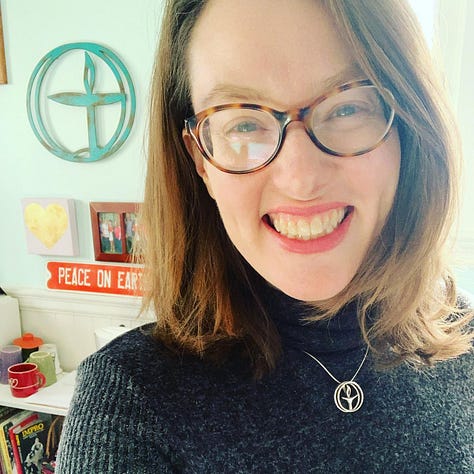
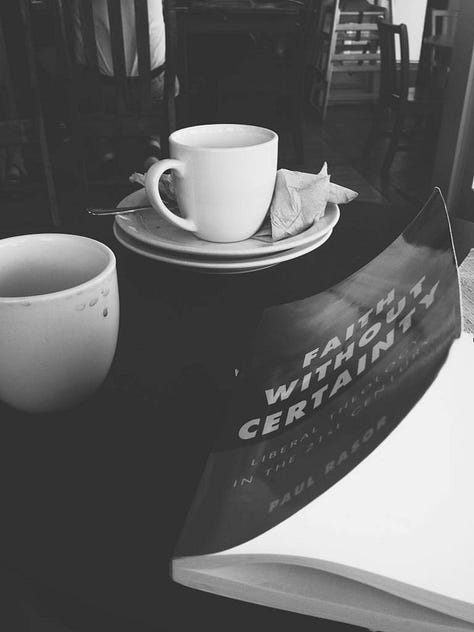
Guess how many times I did this lovely practice?
Once. The morning I thought it up.
And never again.
I wanted to be the kind of person who wakes at dawn, writes and contemplates, and sits in silence. But the reality of my life at that moment looked very different.
For many of us, spiritual practice is just one more thing we think we should be doing—like flossing or eating kale. And for those of us who don’t relate to traditional religion, the concept can feel even more convoluted.
What is a spiritual practice if you don’t really believe in god or if you reject religion?
There is a common belief that agnostics are deeply ambivalent about the existence of god. And maybe for some of us, that is true! But in my experience, it is more true to say, that agnostics are deeply committed to embracing uncertainty, humility, and change. And that commitment to centering mystery and questioning instead of certainty and answers is what makes developing a spiritual practice both challenging and vitally important.
So…how do we practice being uncertain, in a way that feels meaningful and life affirming?
I used to think spiritual practice had to be solitary and solemn—me and the mystery, sizing each other up in silence. But my attempts to copy down eloquent quotes and sit still before dawn felt like a chore. Not a joy.
Eventually, I confessed my failure to my small group. And one of my classmates looked at me and said:
“Alix, you have more spiritual practices than anyone I know.”
I blinked. “How do you figure?”
“You draw. You take a daily bath. You play music. You make time for your friends. Those are all spiritual practices—if you do them with intention. Just follow your joy. Stop trying so hard.”
Oof. A lesson I keep learning again and again:
Follow your joy. Stop trying so hard.
I have a tendency to believe that everything should be hard, and that anything that comes easy isn’t of much value.
But what I have realized over the last 10 years since that conversation, is that the best spiritual practice you can do, is the one you will do.
A spiritual practice needs to be something you can manage even at your lowest capacity, when the world has become quite bleak or overwhelming or terrifying.
For me, that is
a walk in the woods, or if I can’t manage that (and sometimes I really can’t), I take my shoes off and walk barefoot in my yard.
It is a hot bath with a cup of tea.
It is a guided meditation at bedtime.
It is putting on a playlist full of songs from the early 90’s and going for a drive at night.
It is finding the moon between the houses.
It is the extra 5 minutes I sit in the car before I come inside the house.
It is the poems I type into my notes app before I’m fully awake.
Instead of being something you need to add to your daily routine, I invite you to think of your spiritual practices as places of intentional respite. This will often feel like removing something from your day, not adding in more “to do’s”
Journal Prompt: Take a few minutes to write down the times you feel most connected to the spiritual side of yourself.
Practices need to change as you change
What’s fascinating to notice, 10 years after I concocted that original spiritual practice plan, I do find myself waking up at dawn, writing by hand before I am fully awake, and sitting in silence for long stretches of time. As I write this, I am watching the neon pink and blue morning stretch across my office window and drinking my perfectly brewed french roast coffee. But it took me a long time to carve out this kind of time for myself. And there are seasons of our lives that call for a complete overhaul of the way we’ve been practicing our spiritual connections.
Spiritual practice of any kind is designed to help reorient us to the energy and life around us - to lift us out of the ordinary and automatic responses we have. They are a way of reminding ourselves of who we are and what our values are - they are about intention.
A practice is designed to be done in repetition, so make sure you’re choosing practices that you enjoy and things that you’d like to get better at over time! And I think maybe, somewhat importantly, there’s rarely anything cinematic about an honest practice.
A spiritual practice is at it’s core, a time in which you might have a spiritual experience. And for anyone, but especially agnostics, it is a time to grapple with unanswerable questions, receive solace from the ever present hum of existence, and for a moment or two, be held in that ineffable, radiant love of which we are all a part.
Not in theory, but in practice.
A spiritual practice is, at its core, a time in which you might have a spiritual experience.
The equinox invites balance. But not the kind that’s perfect or permanent—just the kind that says, maybe for today, I can meet myself with honesty and care.
If you’re looking for a gentle structure to hold your creative and spiritual life this season, I’d love to invite you into two things:
🌱 Seeds of Poetry – my spring writing circle begins April 5th. It’s 8 weeks of prompts, live calls, poetic exploration, and quiet transformation. No critique. No pressure. Just a space to reconnect to the magic of your own voice.
📖 Quietly Wild – my new book (coming this fall) offers seasonal rituals, poetry, and photography to help you mark the turning of the year in your own way. It includes invitations like this one—simple, heartfelt, and rooted in the real world. Pre-orders make all the difference in the world to the success of a book, and this one is available widely - so please choose your favorite indie bookstore and request they carry it!
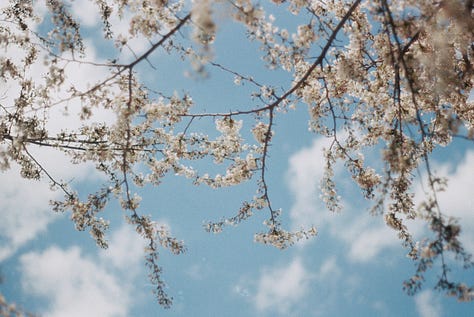


What are some of the ways you connect with mystery? I’d love to here in the comments!
If you enjoy these letters or my work in general, please do share with your friends & hit the share button below - it makes a world of difference!
with bright blue blessing of spring,
Alix





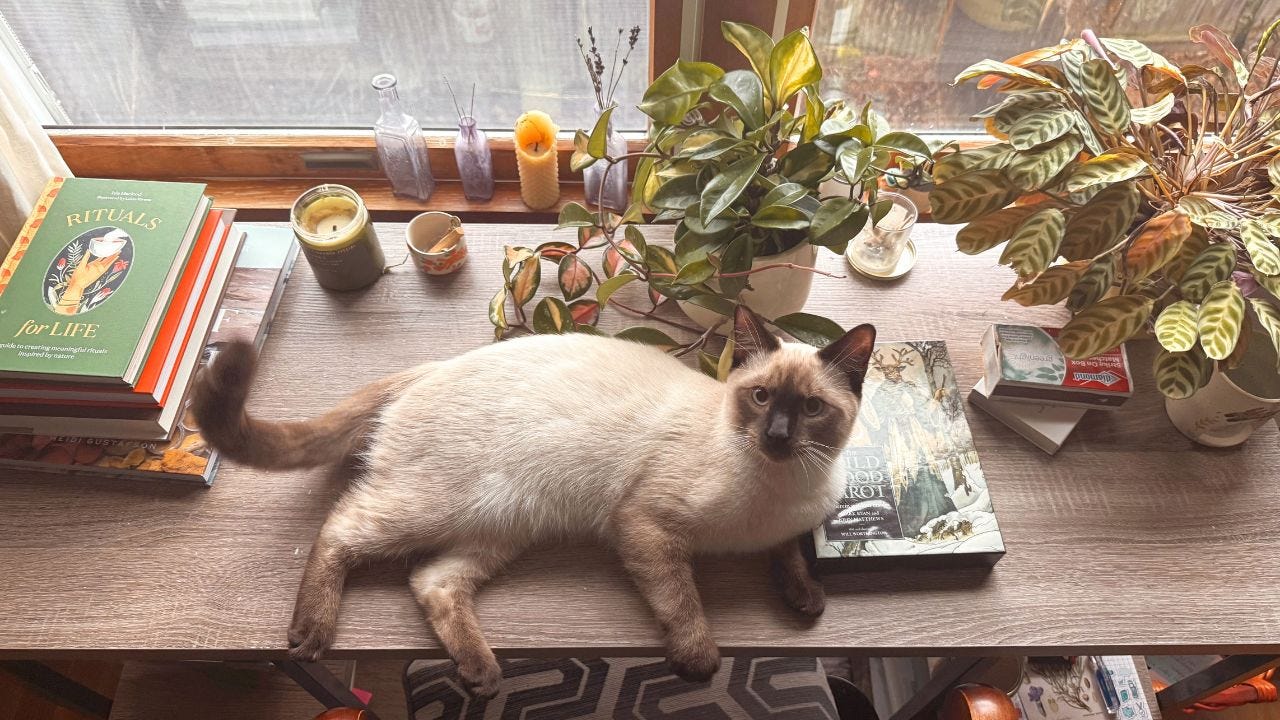
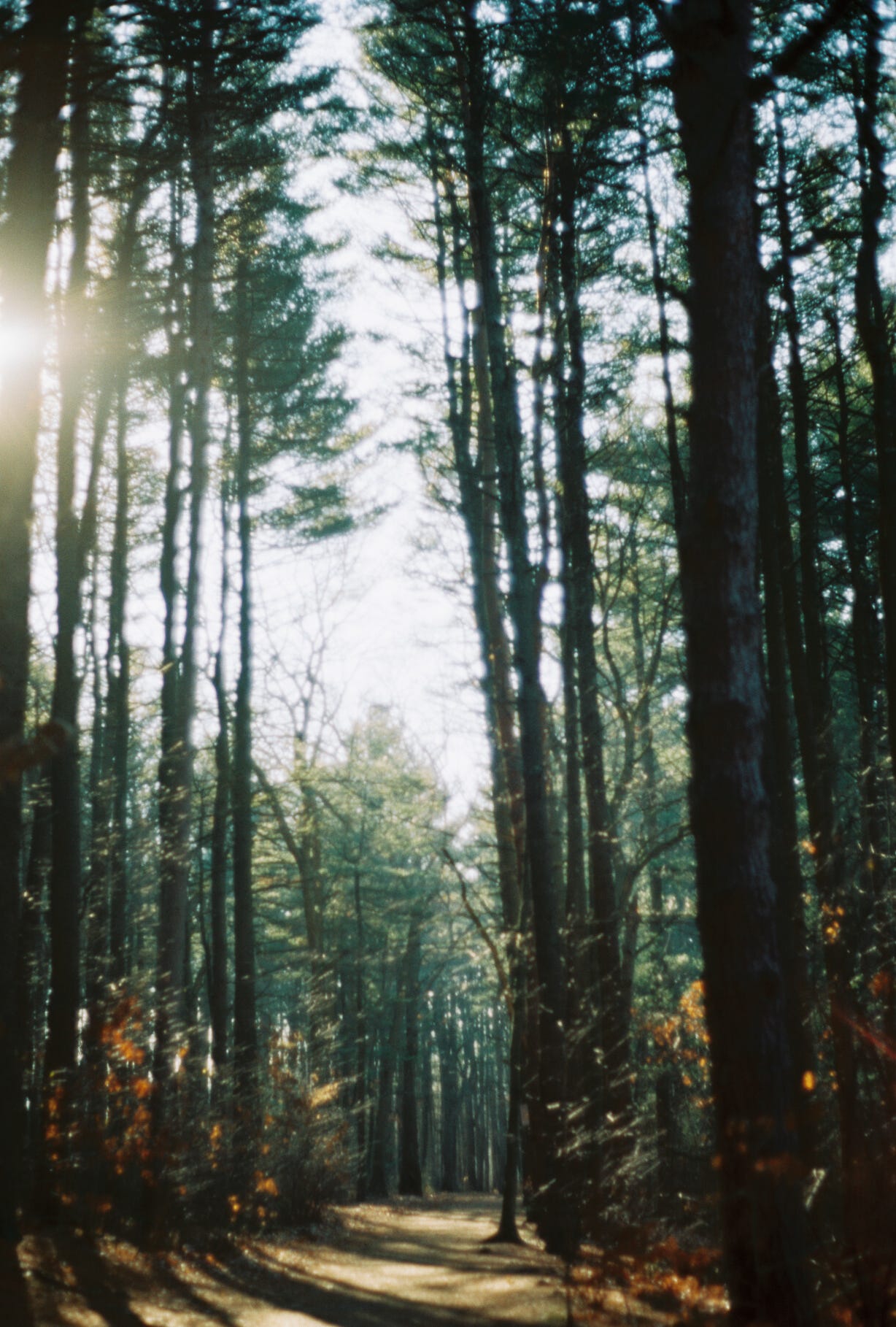
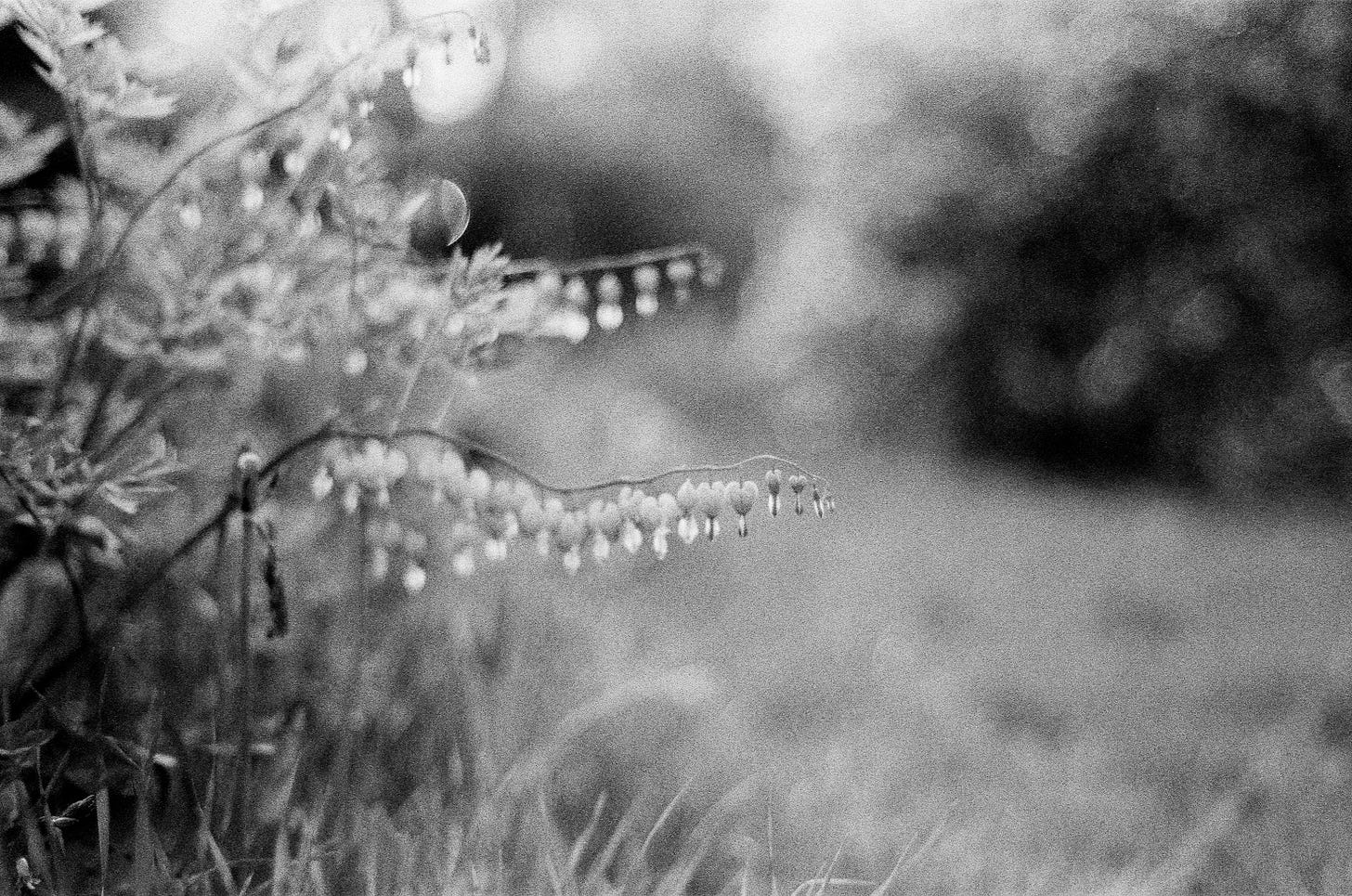
THIS. Your words filled a need in me that I couldn't define. But one of my lifelong practices (I'm 79) is to go out to our garden. Some days I simply walk the little graveled pathways which I laboriously created. Other days, I stop to pull out a few weeds. I always tell all the plants how much I appreciate them being in my life. I encourage a few dandelions to spread their sunny faces. They are the earliest flowers to bloom, which is vital for honey bees, as they are reborn . Their lifespans are perhaps 5-6 weeks. Their food, the nectar they gather, is the sustenance of life-saving honey. I watch the bees drink at our little fountain. They truth is, the garden doesn't need me. I need it.
I needed to read some of these encouraging words today Alix - thank you 💜 (especially 'finding the moon between two houses' 🥰)